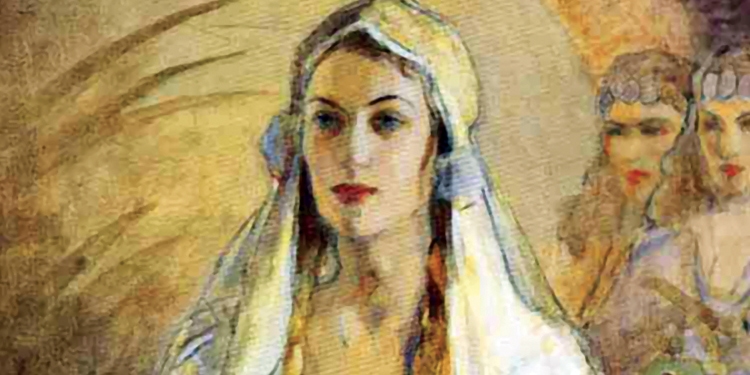Taking a Stand
The Fellowship | March 19, 2019

“Go, gather together all the Jews who are in Susa, and fast for me. Do not eat or drink for three days, night or day. I and my attendants will fast as you do. When this is done, I will go to the king, even though it is against the law. And if I perish, I perish.” — Esther 4: 16
Jews around the world celebrate Purim, the Divine deliverance of the Jewish people from certain annihilation, in the events described in the book of Esther. Please enjoy these devotions from my father, Rabbi Yechiel Eckstein, in his loving memory.
— Yael Eckstein, CEO & President
As queen of Persia, we might have expected that Esther had one of the most secure positions in all the empire. She had won the heart and affection of King Xerxes; she had servants at her beck and call; she had all the comforts that came with living in a palace.
Yet, such security came with a price. Queen Esther enjoyed the privileges that came with her position as long as she obeyed the king and did nothing to incur his wrath. Her “security” teetered on a delicate balance that could easily tip if she made the wrong move.
So when Mordecai, her Jewish cousin, informed her of Haman’s plot to kill all the Jews in the empire and begged her to intervene on her people’s behalf, Esther was faced with a difficult choice: Either she could remain silent and hope that the king would not discover her secret identity as a Jew, and thus, survive; or she could risk death by appearing before the king, revealing her true identity, and seeking relief for her people.
Mordecai’s words surely must have guided her decision: “Do not think that because you are in the king’s house you alone of all the Jews will escape. For if you remain silent at this time, relief and deliverance for the Jews will arise from another place, but you and your father’s family will perish. And who knows but that you have come to your royal position for such a time as this?” (Esther 4: 13–14).
Esther must have realized that her security did not rest upon her position, or her possessions, or even her husband, the king, but in the One whose name is not mentioned at all in the book: God. And so she made her decision to approach the king, calling upon her fellow Jews to fast and pray for her. And, as she told Mordecai, “If I perish, I perish.”
We might not face such grave circumstances as Esther did, but God has placed each one of us in unique situations and positions. We all have a choice to make — to remain silent in the face of injustice and suffering to “save” our reputation. Or we can decide, like Esther did, to take a stand, no matter what the circumstances.
What will you decide? Where will you stand and be accounted for in a time such as this?
To learn more about Queen Esther, please download our Bible study, “The Life of Esther.”
